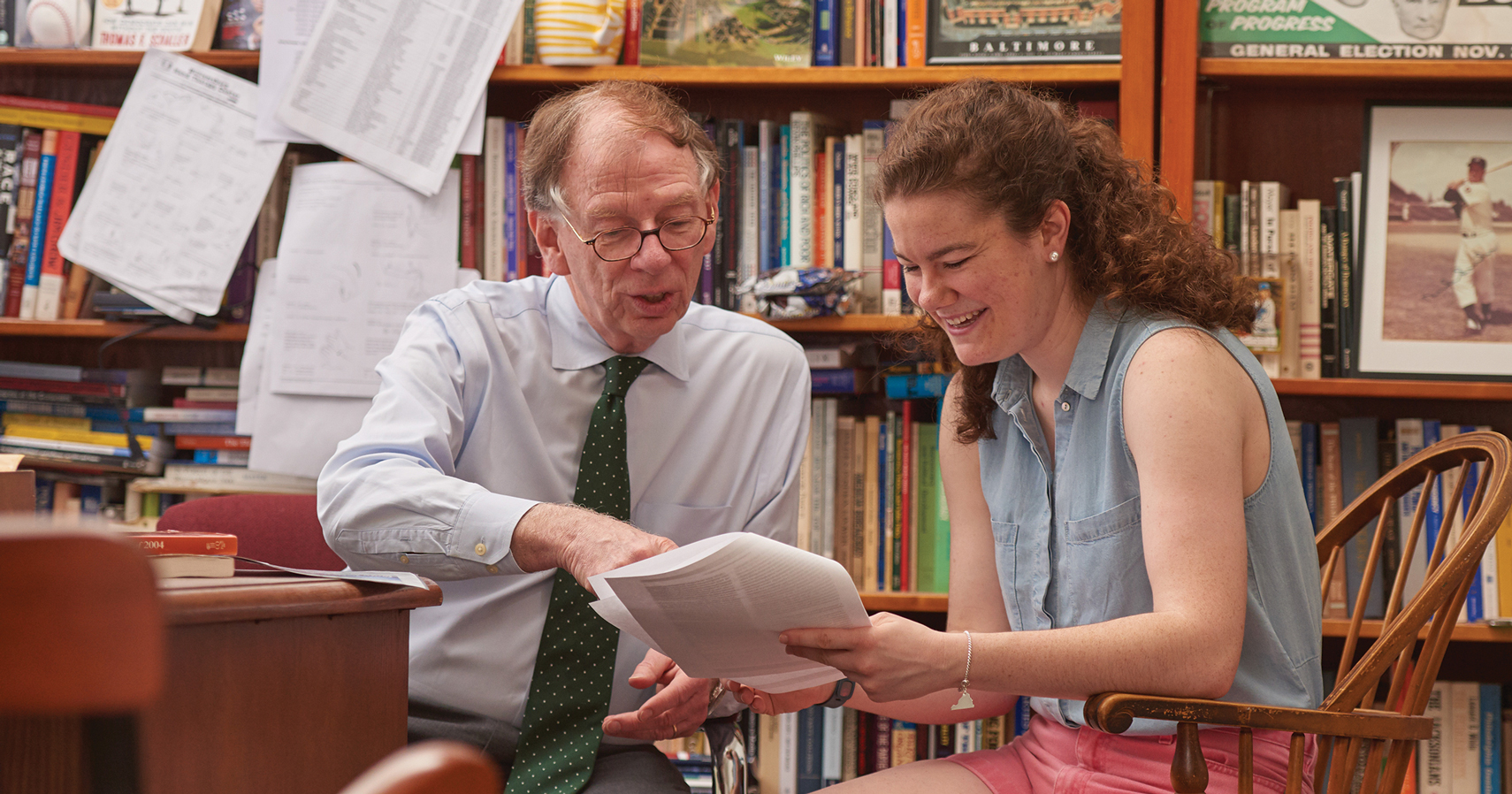COLL 300 Curriculum Broadens Horizons
January 25, 2021
By
University Advancement Staff

William & Mary undergraduate students share the College Curriculum experience, a set of specially designed courses that connect and integrate knowledge across the academic disciplines. The COLL 300 curriculum, which debuted in 2015 and became a requirement for all students in 2017, addresses cross-cultural, global issues and encourages students in their third year at W&M to actively engage with the world around them.
COLL 300 classes are built around lectures by W&M faculty and visiting scholars, artists and public figures, and are supported in part by the Arts & Sciences Annual Fund. The university’s Center for the Liberal Arts determines the semester’s theme and hosts three related guests. Speakers offer readings, performances or lectures to broaden students’ worldviews. Through COLL 300, students also study abroad or experience different cultures away from campus.
According to Dean for Education Policy John Donahue, the COLL curriculum has encouraged faculty to be creative in developing their courses.
“The most exciting part of the COLL curriculum is the opportunity it presents for faculty to teach new things or to present material in new ways while continuing their close engagement with students. This is what [makes] W&M so special,” says Donahue.
Spring 2019’s theme was “ceremony,” following previous themes of “bodies that matter” and “sustainability.” Guests explained how ceremonies of different forms ground “the legitimacy of authority” and “express the accepted social order” as well as transitions within it. William & Mary hosted Setsuko Thurlow, a hibakusha (survivor of the 1945 Hiroshima bombing) who has dedicated her life to advocating for peace and disarmament. She teaches people around the world “what it means to live in a nuclear age” and she has received the Nobel Peace Prize for her commitment to the cause. Thurlow also described how the hibakusha fulfill the traditional role of storyteller; there is a belief in Japanese culture that only those with first-hand experiences of an event have the cultural authority to speak about it.
The intersectional, global nature of Thurlow’s work exposed William & Mary students to what is at stake when they study inequality, government and policy.
Thurlow’s appearance is just one powerful example of the vivid stories that COLL 300 speakers have brought to campus. That same semester, Anderson Silva Argolo, Patrick Santos Da Silva, and Urania de Oliveira Rodrigues illustrated their knowledge of Afro-Brazilian Candomblé rituals through a lecture and performance of traditional drumming. They also discussed how learning about issues of misogyny, racism and the memory of colonialism through the religion helps them combat the many forms of intolerance and inequality that manifest themselves in Brazil’s current political landscape.
By demonstrating how history, culture and modern society interact, Thurlow, Silva Argolo, Santos Da Silva, and Oliveira Rodrigues showed students how they can use their education — from COLL 300 and beyond — to bring about a brighter future.